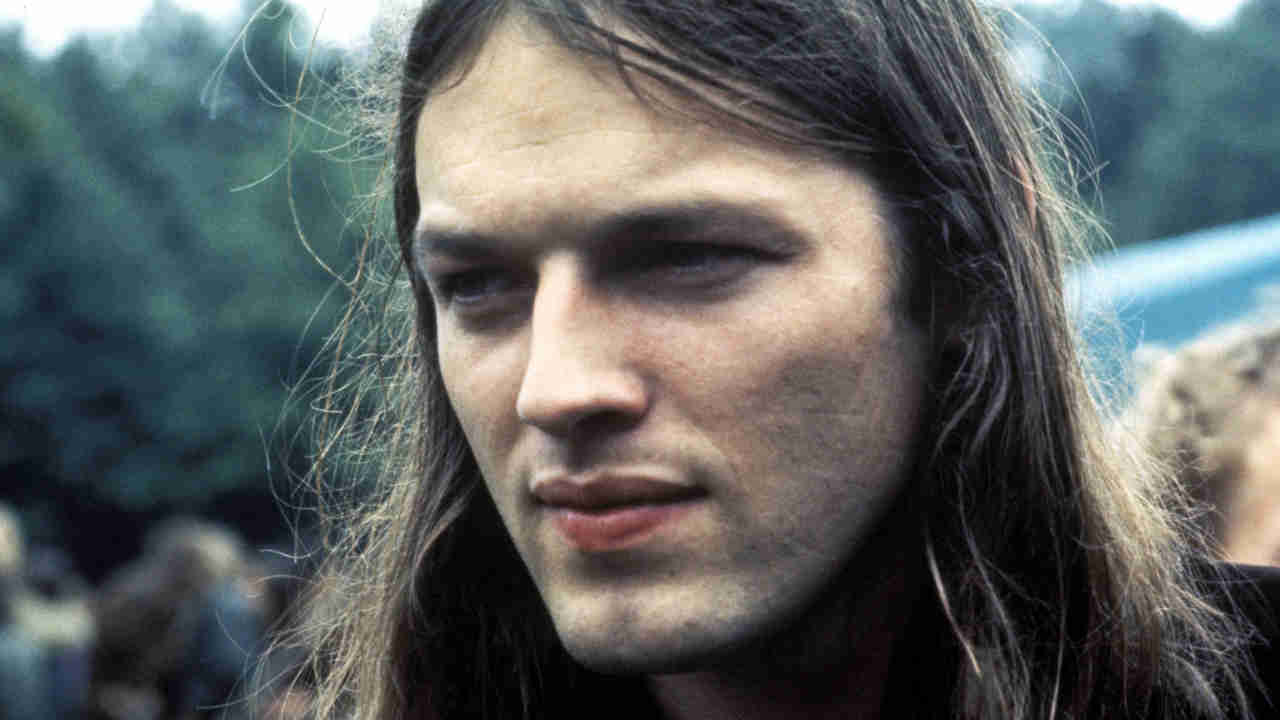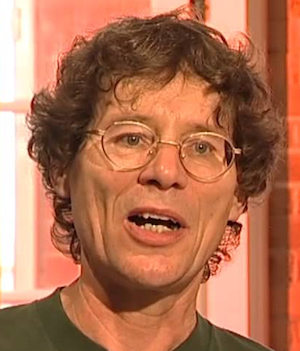David Gilmour will never escape questions about whether Pink Floyd would ever reunite, despite a mass of evidence to the contrary. When Classic Rock met up with him at his home 2002, eight years after Floyd’s then-final studio album The Division Bell and three before the band’s brief reunion at Live 8 , he was focussed on going it alone and finally laying his old band to rest.

The image of David Gilmour as calm, focused and unflappable goes back over a quarter of a century. Whether standing amid the cacophonous sensory overload of a Pink Floyd spectacular or alone in the lush acoustic intimacy of the Royal Festival Hall, he has always maintained the same dedicated, unhurried, workmanlike demeanor.
Like the recommended plumber who comes round to unblock your U-bend (oo-er, missus), he will take as long as it takes but you will be satisfied with the result. As opposed to the bloke you found in the Yellow Pages who turns up in a flash shirt and pressed jeans, ear glued to his mobile, acting like he’s doing you a big favour, leaving the job half done and you to clean up the wet patch.
At 2001’s solo concerts at London’s Meltdown Festival, he seems like the most unruffled person in the Royal Festival Hall. He’s certainly calmer than the audience, many of whom are unable to suppress squeals of excitement at the merest hint of a recognisable riff.
But beneath that placid exterior there were other forces at work. “I can show you places where the nerves are there,” says David. “At the beginning of Shine On You Crazy Diamond there’s a close-up of me doing a vibrato on the acoustic guitar which is more than I’d ever intended. That was due to trembling. It wasn’t as under control as one would like it to be.”
We’re sitting in David’s studio upstairs in the barn overlooking his house, deep in the rockbroker belt that lies between London and the South coast. It’s a sunny September afternoon and small children occasionally dash between the house and some tents on the back lawn. His wife Polly pushes a pram around the garden, lulling their week-old daughter to sleep.
There’s no sign of celebrity life-style to titillate the tabloids. Even the studio denotes “musician at work” rather than “rock star in residence”. At one end there’s a mixing console with associated screens, computers and keyboards. Bits of masking tape mark out exactly where David is supposed to sit while he’s remixing Pink Floyd’s Pulse live DVD for 5.1 surround sound.
The rest of the room is a comfortable clutter of sofas, tables and bits of equipment with a sink in the corner and two piles of vinyl albums awaiting sorting. Next to one of the sofas is a stand with eight or nine guitars, many of which would be instantly familiar to anyone who has followed David’s career. Among them is his first guitar, a Spanish acoustic from the early 60s.
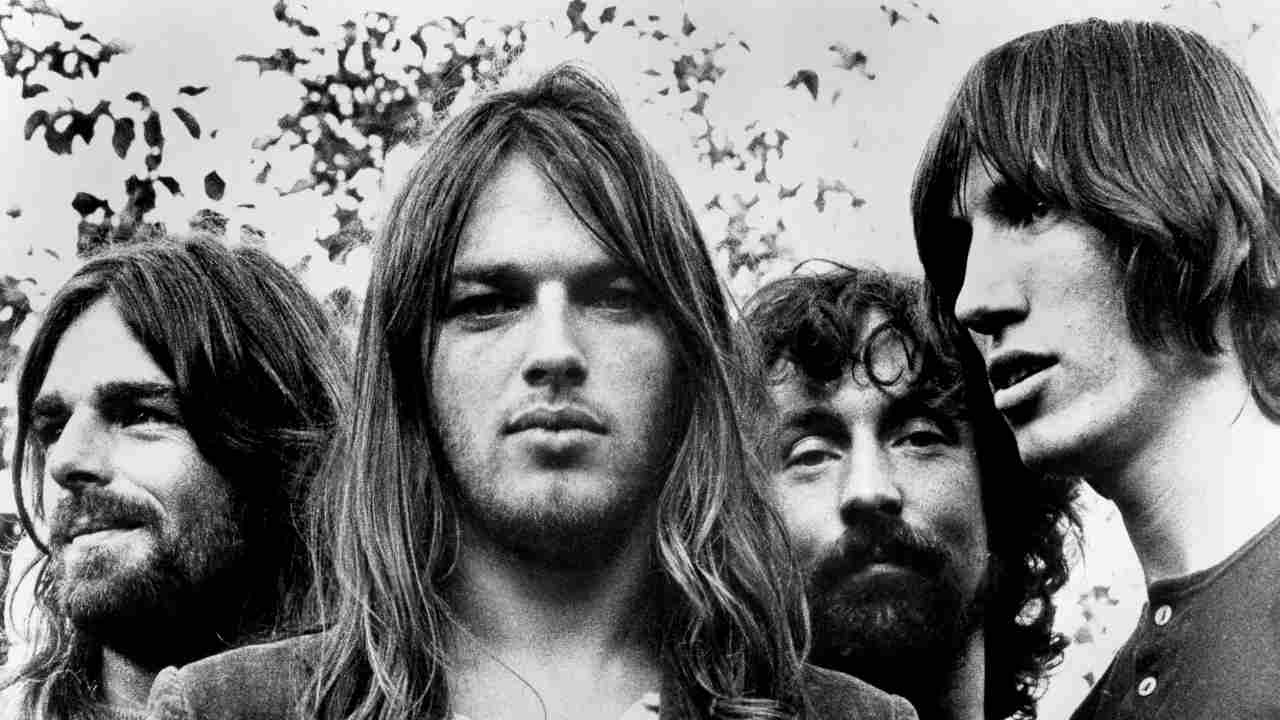
On one of the tables is a long black instrument case containing a bass harmonica, purchased after seeing Brian Wilson in concert at this year’s Meltdown Festival. The noise it makes comes straight off a backing track for God Only Knows. “I’ll put that on something one of these days,” muses David. “It needs a special role, though.”
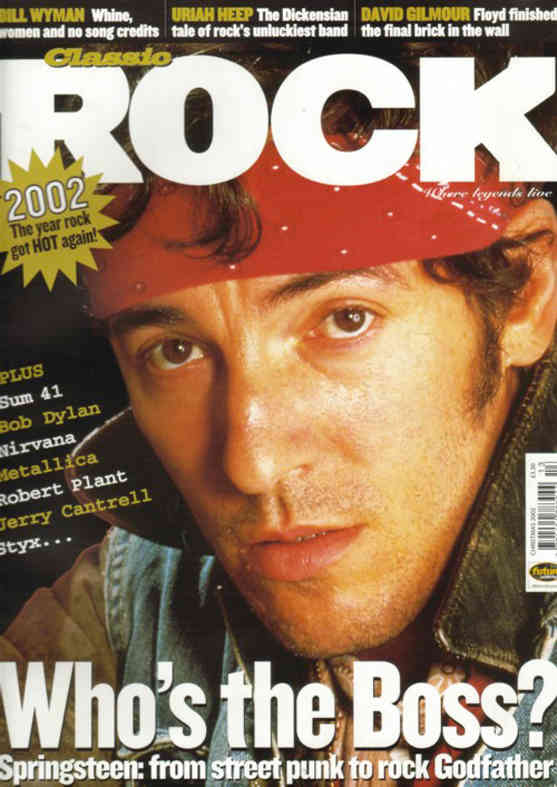
It was in this studio that David came to “panic” after he’d accepted an invitation to perform at the June 2001 Meltdown during a phone call from Robert Wyatt who was putting it together. “I came in here and I tried out a lot of songs from the Pink Floyd catalogue first,” he explains. “Really, it was to give myself a safety net. I had a string sampler and I tried them out with the kind of instrumentation I’d already decided I wanted to use, just to see if they worked.”
He’d decided on a band of cello, double bass, brass section and “gospelly” choir even before he’d put the phone down to Wyatt. An unusual choice but one that immediately distanced him from Pink Floyd. “I love orchestras and I particularly love the cello. And the sound of a gospelly choir is something that’s always appealed to me. I chickened out of getting a real gospel choir. Having a number of singers like Sam Brown, who I knew well and have used many times before, made me feel better. Because I was quite nervous about the whole thing.”
It wasn’t that David hadn’t played solo before – there have been notable appearances with Paul McCartney, Pete Townshend, Tom Jones, Dream Academy and even Spinal Tap as well as solo spots at various benefit shows. Not to mention a solo tour back in ’84.
“That was pretty much done with the same sort of rock band, just on a smaller scale,” he says. “This was looking forward, trying to find a way of exploring something different. Not necessarily forever. When I do it again it will undoubtedly change, though I’ve no idea what to. But it’s nice to be freed from any strictures, which admittedly are self-imposed.”
He tackled those strictures head on, starting the Meltdown shows – just like Pink Floyd invariably did on their last tour – with Shine On You Crazy Diamond. “There was a moment of thinking, ‘Shall I attempt an acoustic guitar version of the long, synthesised opening?’ It came to me one day how I could do it and it worked out not too badly.” The solution, involving delay units, pedals and “plenty of regeneration”, made for a novel variation on the epic introduction.
For Comfortably Numb he says he went back to the original demo to remind himself of the acoustic original. That’ll be demo he once played on a Capital Radio show then – a couple of minutes of strumming around the wordless melody that, tantalisingly, never reaches the final chord.
“I never get to the ‘I have become comfortably numb’ bit because Roger Waters said he wanted to put that line in as a lyric and I had to write the extra bit there and then.” He reaches over and takes an acoustic guitar from the stand and starts picking at the same chord structure. “This is the guitar I wrote it on. It’s still strung the same way.”
He also enjoyed revisiting Fat Old Sun which hadn’t been aired since the Atom Heart Mother tour over 30 years ago. Several friends requested it and David was happy to oblige. “I really like it. Even I forget that I ever wrote lyrics! I wasn’t allowed to put it on Echoes (last year’s Pink Floyd compilation), I was out-voted.”
Having strung up his “safety net”, which also included songs from the recent, Roger-less Pink Floyd, he could get more adventurous when it came to picking covers. Undoubtedly the bravest was Je Crois Entendre Encore from Bizet’s opera The Pearl Fishers which must have required a considerable leap of faith to carry off. “It certainly did. I remember my wife Polly’s face going red when I tried singing it and my face literally going into a cold sweat – ‘Do I dare try this?’ But once the choir came up here and ran through it with me, that gave me a huge amount of confidence.” Nevertheless, he remembers feeling “very, very exposed” when it came to singing it in public.
The trick, apparently, is to get inside the song. “You need to inhabit the song to do it justice”. And the same applies to the two Syd Barrett songs he covered. “I think I did Terrapin pretty much as the record, as much as I reasonably could. Dominoes I did change around a little. I gave it a slightly jazzier feel.”
Was he also trying to make them more accessible, maybe, for those who find Syd’s deranged delivery a little hard to take? “Like an easy listening version, you mean?” Well, not exactly, but… “No, that’s fine. That’s fine. Many of his songs are just… too personal to Syd. Or too… incomprehensible in some ways. With some of them it’s hard to feel confident about inhabiting the song. I’m pretty sure I know where Terrapin is coming from. It’s that underwater vibe. Although it is slightly off the wall lyrically.”
As Syd’s fans are well aware, there are two songs he recorded with Pink Floyd for an aborted single in 1967 that have never been issued. And while anyone who’s interested can find Vegetable Man and Scream Thy Last Scream on bootlegs, it remains something of an anomaly that they’ve never been released, particularly as they are infinitely better than any of the extraneous bits and bobs that showed up on the ‘Barratt’ box set a few years back.
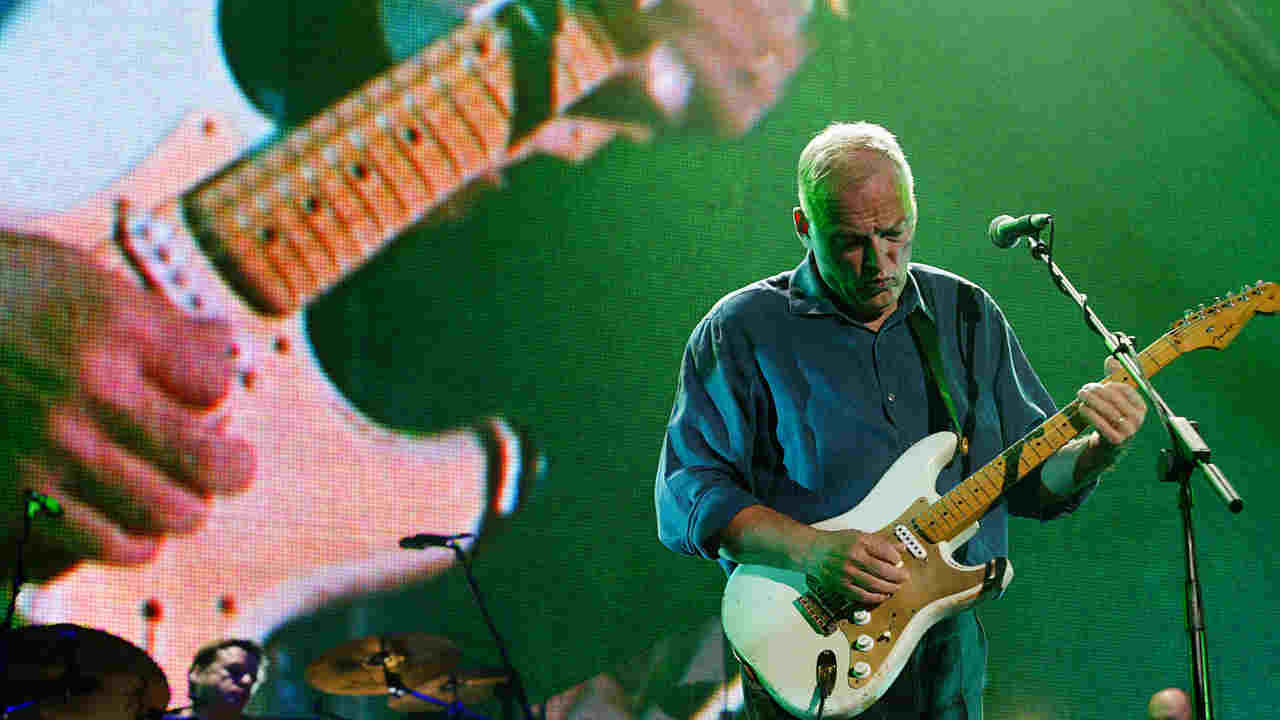
“Vegetable Man is good,” confirms David, “and Scream Thy Last Scream has lead vocals by Nick Mason. We did actually perform that one a few times in my very early years with Pink Floyd. I don’t know if they were ever finally mixed or anything to be honest. And that whole era is before I joined so I don’t really know the history of what happened with those songs. I think it has been mooted that they be put out but I think some people are a little unwilling to put them out,” he adds with a hint of evasion. “I’d be perfectly happy for them to be dug out and preferably remixed and put out.”
I suggest that the spirit of Syd still seems to haunt them all. There are references to him in every show that Pink Floyd, David or Roger perform. “Yes, that’s true. It’s hard to get away from. One could get away from it if one wanted to but… it doesn’t obsess me either way. I’m happy. I mean, Syd was the reason for the band’s existence. They wouldn’t have started without Syd. And his descent into his own private hell is very well documented on Wish You Were Here with some music that I’m very proud to have been a part of.”
While Wish You Were Here is probably most Pink Floyd fans’ favourite album, in terms of sales and record-breaking statistics it remains eclipsed by its predecessor, Dark Side Of The Moon. But David is with the fans on this one.
“I had some criticisms of Dark Side Of The Moon. It’s kind of ludicrous in a way to have criticisms of an album that was so successful but I did voice them at the time. I thought that one or two of the vehicles carrying the ideas were not as strong as the ideas that they carried. I thought we should try and work harder on marrying the idea and the vehicle that carried it, so that they both had an equal magic, or whatever, to them. So it’s something I was personally pushing when we made Wish You Were Here. It’s underrated by some, but not by me. I think it’s our most complete album.”
Roger said recently that Wish You Were Here was mourning the loss of the group as a band of brothers as much as it was mourning the loss of Syd. Does David go along with that? “Maybe in mourning the band, not as a band of brothers I don’t think, but more in terms of a band of seekers if you like. We were people dedicated to hunting down and playing something with some meaning and soul.
“The period after Dark Side Of the Moon when we made Wish You Were Here was a strange time. We had achieved everything really that one could hope to achieve. There was a bit of a distance between us all at that point, and Roger wasn’t the only one who noticed this sense of absence.
“But that sense of absence is part of the album’s magic. It helped create it. I don’t know quite how it did. I can’t regret that period at all. I don’t think it’s necessary for that absence, that feeling of post-euphoria… I don’t see it as something permanent. You maybe suffer a little dip in some ways. But little dips in life can inspire great things. It is odd to try and work out how something as good as that album came out of this rather blank feeling that we had.”
Almost as odd as trying to work out why Syd, who none of the band had seen in over four years, should suddenly show up in the control room one day while they were mixing the album. It overwhelmed them at the time and, to judge from their comments in a TV documentary on Syd earlier this year, it overwhelms them still. David said he didn’t recognise the man with the “shaved, bald head, very plump”.
“It was a strange thing. It was a strange thing to happen,” he says. Did you acknowledge him? Did he acknowledge you? “Eventually. Eventually we said hello. When we realised. It did take a little time before we cottoned on to what was going on.”
Did he ask about the album, you were working on? “I don’t think so.” Do you know why he was there? “No. He obviously knew the studio well. He’d done most of his recording there, including his solo albums. I mean, I’ve no idea why. We’d spent months in there so maybe it was pure coincidence.”
Have you seen him since? “No.” But he’s OK. “So they tell me, yes. He’s got relatives around him and I don’t think he wants for anything in particular. I’d like to go and see him one of these days.” Isn’t there a risk that he might become disturbed if he’s confronted by his past? “I don’t know whether that’s still the case. That was something I discussed with his sister 20 years ago. I think he’s more settled and happy in his skin these days.”
As is David. So much so he’s planning a solo album. “I’m hoping to make an album next year. I haven’t got very far with it as yet. Time seems to be flying by.” Well, you’ve got one song for it – Smile – the only new song that was played at the Meltdown shows.
“Yes, indeed. It’s a start,” he chuckles while walking across to the studio and tapping at the keyboard. Seconds later the demo of Smile is playing. It has the same simplicity as the live version but it has a clearer direction about it and sounds more realised. Just about ready in fact. David nods in agreement. “It didn’t quite come out the way I wanted it to in concert.”
Do you have any other songs for the album? “I’ve got plenty of bits of music that I need to do a lot of work on,” he replies. For lyrics he need look no further than Polly, who contributed several to The Division Bell as well as Smile. “Strangely enough, as valuable as she is in the lyrical sense which, as a writer is her forte, she’s very strong with musical production ideas too. She had a lot of little ideas on The Division Bell which were not properly credited.”
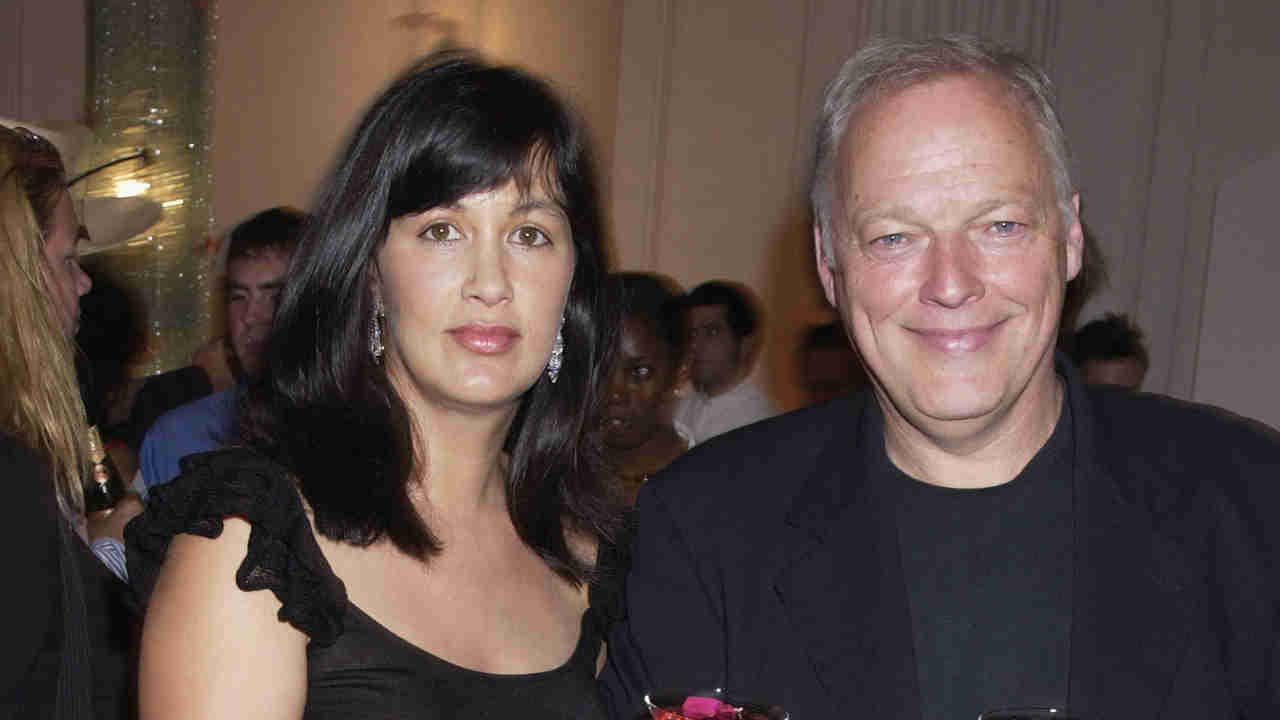
Are you hearing much new music that interests you these days? “Well, radio is my ear for what’s going on in the outside world. Of course down here we can barely get Virgin Radio, let alone any of the other good stations that you can get in London, like Xfm which I rather enjoy.
“I found the Streets’ Let’s Push Things Forward grew on me when I was in town recently. It’s forward looking and anarchic. It has its own anti-big company ethos which I like. And it has strange little quirks of timing that I find very hard to use. Perhaps it will influence me in the future, I don’t know. But it’s nice to hear something that works which is outside your usual frame of reference.”
Which leaves us with the diminishing prospects of seeing Pink Floyd in concert again. David has already stated that he has no desire “to hit the stadiums again” although he hasn’t yet closed the stable (or stadium) door.
“Well, I don’t like to say that I’ll never do something again, but I suspect that I’ve done that. One never knows if one’s tired old ego might creep up on you and persuade you to give it another go. I mean, I’m at liberty to play with Rick and Nick any time. But the weight of the whole Pink Floyd thing is something I don’t feel like lifting these days.”
“And I wouldn’t feel happy doing it without a new record. Going out and cashing in, playing all the old songs again, isn’t really what I’m into, or ever have been. Touring would have to be on the back of another Pink Floyd record and I don’t feel in the mood to compromise in that way right now. I think I’ll stick to my own label for the time being. I just think I’ve grown out of it. Finally. Probably…”
Riding back to the station in David’s classic car – I forgot to ask, but 50s or 60s to judge by the amount of chrome and the leather seats – I ask whether Nick Mason had told him he was going to be making an appearance at Roger Waters’s recent London shows. He says not and, like the whole Syd thing, he’s not obsessed either way.
As we pull up at the station there are some glances, mainly at the car which is one gleam ahead of the rest, and a couple at the driver. I suggest that he gets more recognition now than he did at the height of Pink Floyd’s fame when they were famously anonymous. “That’s true.” And you don’t mind? “I don’t care very much. The sort of recognition I get these days wandering around London or around here… they don’t really care very much. There’s no pestering.” He couldn’t have planned it better.
Originally published in Classic Rock issue 48. December 2002
